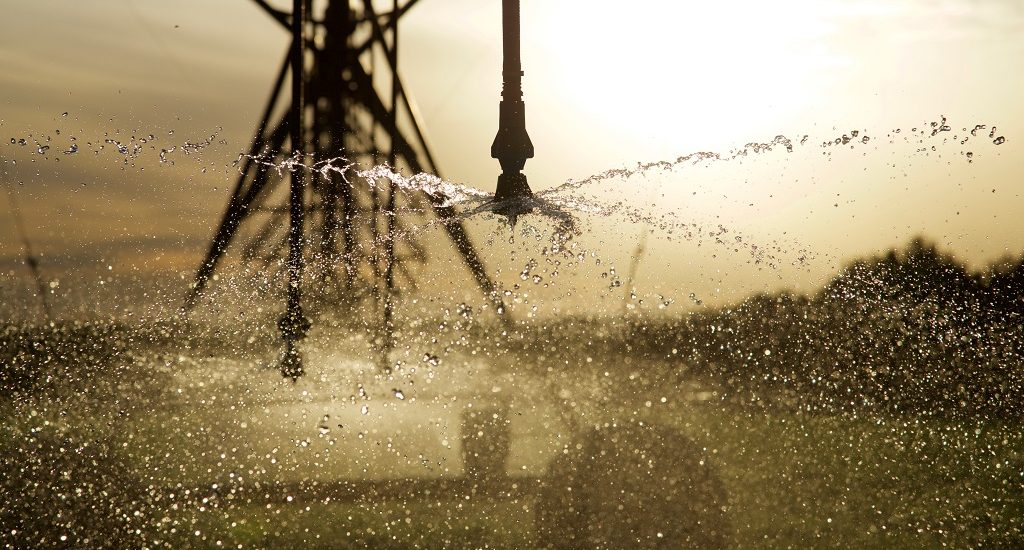- 29 May 2020
- Posted by: Canberra Innovation Network
- Categories: Event News, Media Releases

The recent ‘black summer’ of bushfires and the devastating drought that preceded it has made evident the water management challenges facing Australia. 2019 was the driest year on record with nationally averaged rainfall 40% below the long term average. Fires over the summer of 2019/20 burned nearly 19 million hectares of forest and killed at least 34 people. This came at the end of three years of drought across southern Australia which has been the most intense on record.
Canberra is emerging as a key centre of innovation in dealing with the emerging water challenges. Building on expertise at ANU, University of Canberra, CSIRO and the Commonwealth Government, a series of new initiatives have emerged in the nation’s capital.
“Within Canberra, a whole knowledge ecosystem is growing up around water use and management” said CEO of the Canberra Innovation Network (CBRIN), Petr Adámek. “There is a shared recognition of the water challenges we face and an appetite for being part of the solutions”.
Helping drive the development of technology to improve the efficiency of water use is the Centre for Entrepreneurial Agri-Technology (CEAT) – a new joint venture between ANU, CSIRO and the ACT Government. CEAT is to develop innovations which ensure that Australian agriculture is resilient to future droughts and drying trends.
“CEAT is helping build an innovation ecosystem where Canberra’s world-class research and technology are used to address the major challenges facing agriculture, including drought” said Owen Atkin, Director of CEAT.
“By working together to develop new technologies that reduce agricultural water use, ANU and CSIRO researchers are at the forefront of helping improve the resilience of Australian agriculture to future droughts and drying trends” said Owen Atkin.
“Through the CEAT partnership, CSIRO and ANU are working closely together to further the resilience of Australian agriculture against the challenges that are being thrown its way”, said Michiel Van Lookeren Campagne, Director of CSIRO Agriculture & Food.
Another initiative that places Canberra at the leading edge of research to ensure water is used sustainably is the recently launched Institute for Water Futures (IWF) at the ANU – an initiative that brings together researchers in social and biophysical sciences across the University.
“With Australia and the world facing more extreme weather and increasing demands, it is imperative that we develop transformative, innovative and robust strategies to resolve the water challenges facing Australia ” said Lorrae Van Kerkhoff, Director of the Institute for Water Futures.
Across town at the University of Canberra, another new research cluster has been established. The Centre for Applied Water Science (CAWS) is a 5 year, $5M investment from the University into solutions-focussed water science research.
“There is a real excitement in focussing our research on achieving water management solutions for Australia” said Ross Thompson, Director of the new Centre. “We hope that the new Centre will champion research on water that helps us manage Australia’s rivers better. And we really want the centre to be a source of information and education for all Australians”.
CAWS is co-lead (with CSIRO) on the Commonwealth funded FLOW-MER project, a Murray Darling Basin scale assessment of the effects of environmental water management. The project involves more than 60 scientists and 12 organisations across Australia.
“Water management is a huge challenge and will require a collaborative approach to achieve solutions that benefit all Australians, and which inform water management around the world” Professor Thompson said.
The Canberra Innovation Network is supporting its foundation members to bring together these sets of expertise in a series of initiatives to establish Canberra as a national centre for water research.
“We see the water challenges facing Canberra, Australia and the world as needing a collaborative and innovative approach” said Petr Adámek from CBRIN.
One of the first events is a water hackathon – ‘H2O Hack’ – a virtual event from June 11-19 2020 that pits teams against each other to create new solutions to future-proof Australian water. The event is open to the public, with registrations closing Wednesday June 10th.
One of the first events is a water hackathon – ‘H2O Hack’ – a virtual event from June 11-19 2020 that pits teams against each other to create new solutions to future-proof Australian water. The event is being co-organized with Bridge Hub, an agrifood tech innovation hub based in Wagga-Wagga, and is open to the public, with registrations closing Wednesday June 10th.
For media enquiries please contact Prof. Owen Atkin, Director, CEAT owen.atkin@anu.edu.au, Prof. Ross Thompson, Director and Chair, CAWS ross.thompson@canberra.edu.au, or Dr Rose Brodrick, Senior Research Scientist, CSIRO Agriculture and Food rose.brodrick@csiro.au.
Find out more about H2O Hack.

